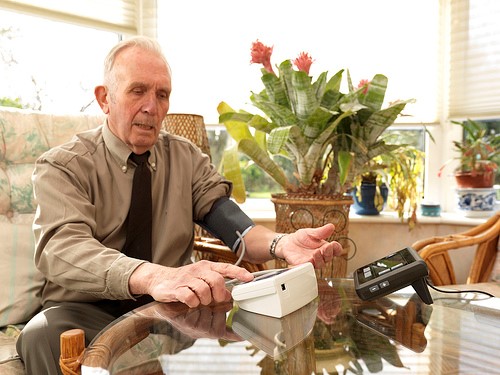MIDAS moves forward with REVERSE Project

How self-monitoring blood pressure can reduce hypertension and cardiovascular risk: the REVERSE feasibility study
High blood pressure represents a serious risk to people’s health, as it may lead to developing hypertension and other cardiovascular problems. In medical terms, being ‘at risk’ means having a systolic blood pressure within the range 120-139 mmHg and a diastolic blood pressure within the range 80-89 mmHg. When this happens, people are considered pre-hypertensive.
Estimates show that a large percentage of adults, about 40%, have blood pressure in the pre-hypertensive range. If people are told they are pre-hypertensive early enough, they can have the opportunity to change their lifestyle and reduce the risk of developing hypertension. However, people with blood pressure in the pre-hypertensive range are not usually aware they are at risk. This means that their health and quality of life may soon become compromised. At the same time, hypertension and other cardiovascular conditions incur healthcare costs that could be prevented.
A potential solution to improve awareness in those in the pre-hypertensive range is allowing them to self-monitor their blood pressure. Self-monitoring may nudge people towards changing their lifestyle behaviours, for instance in terms of their diet and physical activity.
Although there is some initial evidence that self-monitoring your own blood pressure may be beneficial, more research concerning pre-hypertension is needed.
This is the aim of a new feasibility study called REVERSE. REVERSE stands for “Risk rEduction interVEntion for Raised blood preSsurE” and is being run at the University of Central Lancashire. It will explore how feasible self-monitoring is for people managing pre-hypertension and healthcare professionals. This involves exploring if self-monitoring is:
– accepted, i.e. people respond well to it;
– practical, i.e. it can be done with ease;
– and safe, i.e. it does not cause harm.
Testing the feasibility of self-monitoring is key. If self-monitoring of blood pressure turns out to be a feasible intervention, then the next step will involve designing a trial to explore how effective it is. If it is effective, then self-monitoring could be widely recommended to people with high blood pressure.
The study will involve 90 people with blood pressure in the pre-hypertensive range, recruited through their GPs and pharmacies. To self-monitor their blood pressure, participants will receive a home blood pressure machine. They will then be followed up for 6 months to see how they have engaged in and accepted self-monitoring, which is the primary outcome of REVERSE. Among other outcomes that will be explored, the ARC NWC MIDAS Theme will investigate the economic effects of self-monitoring:
1. First, we will determine the costs of the self-monitoring intervention for the NHS.
To do so we will estimate the time spent by healthcare professionals in setting up the intervention. We will also collect information on the participants’ use of healthcare resources (e.g. medicines and appointments) and check how these have changed following the intervention.
2. Second, we will estimate how much the participants are willing to pay for the blood pressure machine.
This will help us determine the economic value of the intervention, and how this is affected by the clinical and socio-economic characteristics of the participants.
The study started in October 2021 and is due to complete in March 2024.
More info:
– REVERSE is funded by the National Institute for Health Research – Research for Patient Benefit programme (NIHR RfPB).
– It is led by Dr Emma Bray, Senior Research Fellow in the Stroke Research Team at the University of Central Lancashire.
– The Lancashire Teaching Hospitals NHS Foundation Trust is the host organisation.
Authors of this summary:
Dr Valerio Benedetto, Health Economist in the Methodological Innovation, Development, Adaptation & Support (MIDAS) Theme in the NIHR ARC NWC and Research Associate in the Applied Health Research hub at the University of Central Lancashire;
Dr Emma Bray, Senior Research Fellow in the Stroke Research Team at the University of Central Lancashire;
Professor Andy Clegg, MIDAS Theme Lead in the NIHR ARC NWC and Professor of Health Services Research in the Applied Health Research hub at the University of Central Lancashire.